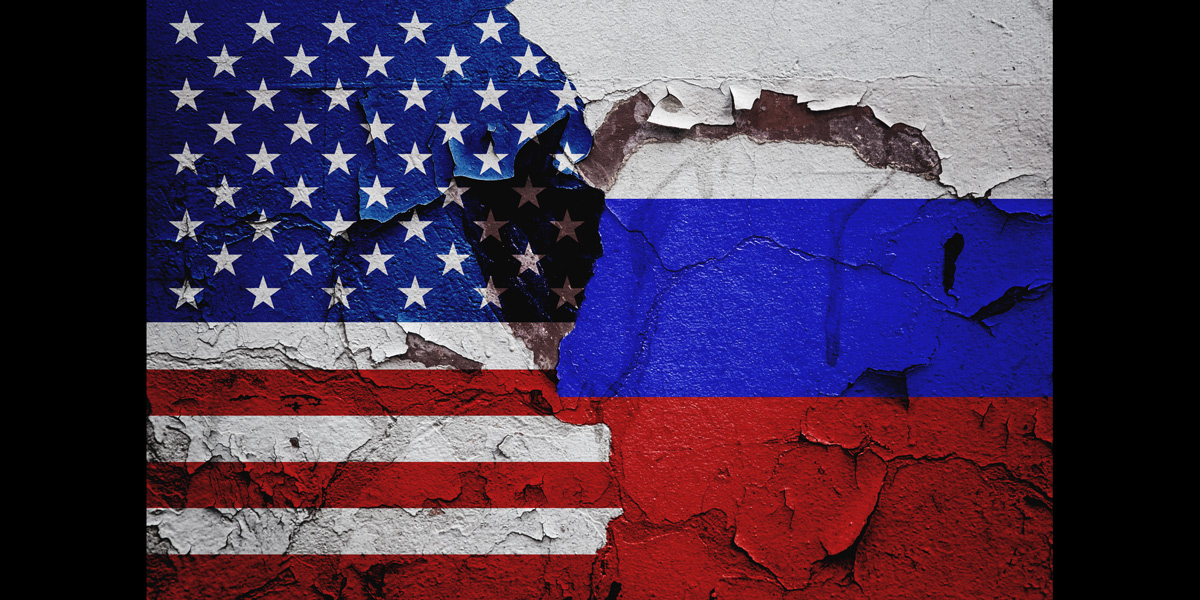
Iowa State University researchers claim Russia is funding anti-GMO articles to hurt US agriculture
With the Russians being blamed for just about everything bad that happens in the West, from freezing weather in the UK to the election of Donald Trump in the US, it was surely only a matter of time before they were accused of trying to turn American citizens against GMOs.
As reported in their local rag, the Des Moines Register, a couple of profs at Iowa State University (ISU) have published research showing Russia is funding media pieces that “question the safety of GMOs in an effort [to] hurt US agriculture interests and bolster its position as the ‘ecologically clean alternative’ to genetically engineered food”.
Shawn Dorius, an ISU assistant sociology professor, said that turning the US or world against GMOs "would have a clear negative effect on an industry in the US and could advantage Russia”.
We owe a debt of gratitude to Dorius and his co-author, Carolyn Lawrence-Dill, an associate professor in ISU's department of genetics, development and cell biology, for showing that much of the negative press about GM foods emanates from Russia, which is, as the Des Moines Register darkly reminds us, a “former communist country”.
Of course, the Russkies might point out that ISU has a history of accepting agribusiness funding and even has representatives of GMO giants Monsanto and Pioneer on its boards.
But it’s a relief to know that the articles dissing GM crops have nothing to do with issues like the agricultural meltdown caused by dicamba herbicide drifting off of fields of GM dicamba-tolerant soybeans and damaging millions of acres of neighbouring crops.
Neither is it anything to do with the collapse of the two main GM traits – herbicide tolerance and Bt insecticidal toxins – in the face of resistant weeds and pests.
Nor, we’re glad to find, are the articles in any way related to the GMO industry’s reckless dumping of its unwanted, poorly tested, and pesticide-soaked products into world food supplies. Add “unlabelled” in the case of the US, where industry has spent millions of dollars fighting labelling that would allow citizens to know which foods are GM.
Neither are they related to the industry and regulatory failure to take seriously the findings of harm in laboratory and farm animals fed GM crops in tests. Or to the attempts by the GMO industry and its allies to smear the reputations of scientists whose work uncovers harms and risks linked to GM foods and their associated pesticides.
Thanks to the ISU profs and the Des Moines Register, we now know that these doubt-promoting articles are nothing more than fabrications motivated by the nefarious self-interest of the US’s old cold war enemy, which has an evil plan to line its own pockets through the sale of “ecologically clean” alternatives to GMOs, while in the process stirring up “division” among the American people.
Why now?
According to Sustainable Pulse, the publication of the research “seems to have been carefully timed to coincide with Russia’s antitrust regulator’s review of the $64 billion Monsanto-Bayer mega-merger, which is reported to not be going well for the two companies”.
Earlier in February Reuters reported that Bayer had taken Russia’s antitrust regulator to court over the watchdog’s investigation into Bayer-Monsanto merger. A Bayer spokesman said the German company was petitioning the court in Russia to be given more time to discuss demands made by the regulator about the deal, which would create the world’s largest seeds and pesticides company.
Sustainable Pulse commented, “Russia’s Federal Anti-Monopoly Service (FAS) has yet to issue a ruling on the takeover, but they will almost certainly not allow the merger to go ahead in the form Bayer and Monsanto would like, which would strike a huge blow to both companies as Bayer is a growing force in Russia.”
So it could be convenient to have a scapegoat to blame not just for the whole GMO controversy but for any resistance to this gigantic agribiz megamerger.










